Entering its ninth season this fall, ABC's "Shark Tank" has doled out $100 million worth of deals to hungry entrepreneurs willing to face the gaze of both the judges and the nationwide audience. Although fans likely remember breakout hits like Scrub Daddy or Wicked Good Cupcakes, the Island of "Shark Tank" rejects might be an even more interesting place than its hall of fame — especially for innovators like these, who took the judge's rejections in stride and rocketed on to success anyway.
Ring
In early 2018, Amazon introduced a smart home doorbell, dubbed Ring: A device that interacts with Echo devices to allow users to peek into their homes and remotely allow people — including Amazon delivery people — inside.
More from GOBankingRates:
Why don't we have 30-hour workweeks?
You can nap on the job at these 10 companies
10 signs you're actually a cheapskate
What you might have missed is that Ring used to be called DoorBot and that its creator, Jamie Siminoff, left season five of "Shark Tank" empty-handed, despite investing $10,000 in his presentation. Nowadays, that investment is small potatoes; Amazon acquired the company for over $1 billion in late February 2018.
Copa di Vino
Vintner James Martin made his mark on "Shark Tank" early when he presented single-serve wine in a plastic container during the show's second season. He pitched the "sharks" on a $600,000 investment in exchange for 30 percent of his business; the sharks wanted the container, but not Martin's wine. Martin walked and claimed to skyrocket from $600,000 to $5 million in sales within the next year.
Despite a rare second round in the tank on season three, due to his impressive success, Martin never made it work with the show's investors. The winemaker knew he had a successful product, and he came across as arrogant. Without the sharks by his side, Copa di Vino went on to sell 38 million cups of wine and make $12 million by 2016. In 2017, Martin told ABC News, "We all know the sharks blew it and missed out on the biggest opportunity they ever had — which was me."
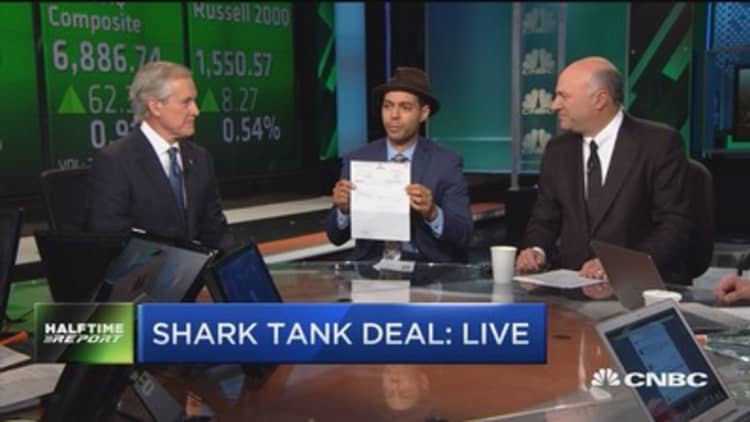
Kodiak Cakes
Launched in January 2014, Kodiak Cakes found itself in the tank in April of that year. When co-founder Joel Clark offered 10 percent of the brand for a $500,000 investment, he projected that his family's whole-grain pancake mix would make $20 million through 2018. Clark left without a deal.
Fast forward to 2018, and it turns out that Clark was wrong. As it happens, the company is actually growing 80 percent year-on-year and has made about $100 million to date, with 20 new products hitting the shelves in 2018.
Hammer and Nails
Despite being invited to the tank just five weeks after opening his first store, Michael Elliot's idea of nail salons for men wasn't a winner with the sharks. His hopeful offer of a 20 percent stake in a Hammer and Nails salon franchise for a $200,000 investment was turned down. At that time, in 2014, Elliot estimated his company's value at $1 million.
Although the sharks didn't bite, angel investors who had seen the episode came forward. From $200,000 of seed money, the currently bustling Hammer and Nails chain was valued at $100 million by mid-2017, with 232 licensed franchise locations. It turns out men really do want manis and pedis.
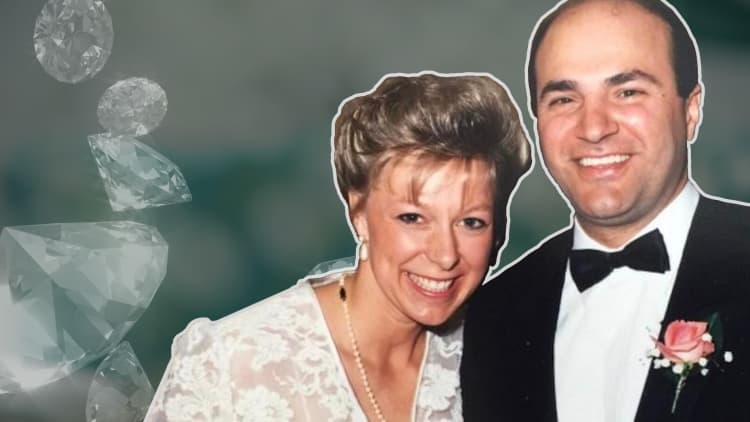
BedJet
In 2015, all five sharks shot Mark Aramli and his BedJet — a fast-cooling fan system for under the bed sheets — right out of dreamland. As the inventor told HubSpot in 2017, "They hated me and they hated my product. They told me no one would ever want the BedJet."
Shark's words, though, aren't gospel. With his own life savings, credit cards and a mortgaged house, Aramli invested in himself. By the time 2016 wrapped, sales rose 300 percent from the prior year, tracking double that in 2017. That same year, BedJet had an estimated company valuation of $9 million, with the average customer spend hovering at a cool $600.
The Lip Bar
You know it's not going well when one of the sharks calls your vegan, paraben-free and gluten-free lipstick "colorful cockroaches." Melissa Butler and Roscoe Spears of The Lip Bar might not have been laughing then, but by the time Taraji P. Henson was wearing their product at the American Music Awards, they were surely sporting some colorful smiles.
It's not just celebs who are endorsing The Lip Bar, either. Following their 2015 "Shark Tank" appearance, yearly revenue nearly tripled to $260,000. By 2018, if you can't track down the company's traveling storefront, shop Target online or visit a participating Target store and grab your own stick in colors like Purple Rain, Conceited, Prima Donna or others.
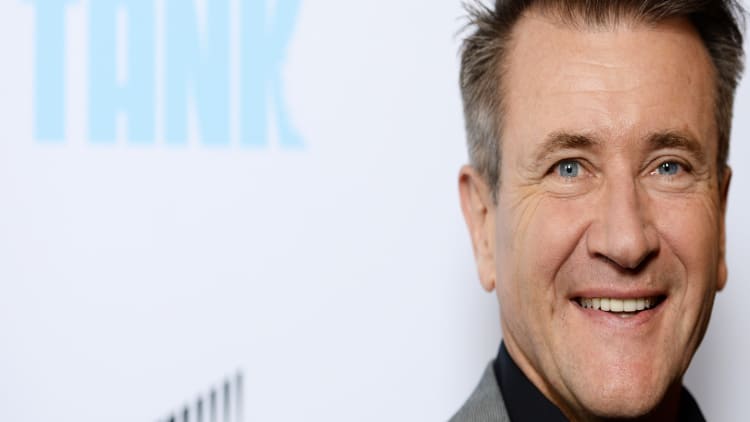
Carhood
On the Australian version of "Shark Tank," the investors decided not to fund a car hood with the asked-for $300,000 — around 230,000 USD. Of course, this wasn't just any car hood — this was Steven Johnson and Christian Schaefer's car-sharing service, Carhood, which lets users rent out their cars at the airport while they're away traveling. The sharks seemed baffled, but Ford Australia wasn't; the massive car company offered Johnson and Schaefer a deal less than a year after their appearance on TV. By 2016, Carhood was valued at around $4 million, or roughly $3 million USD.
Big Shake's Hot Chicken and Fish
Shawn "Chef Big Shake" Davis had a problem during his season-two appearance on "Shark Tank": Just about all the investors loved his product, the shrimp-based burger patty he developed when his daughter decided against eating other meat, but none of them wanted to invest in it.
Once again, the audience came to the rescue. As Davis tells Delish in 2017, his time on the show started his phone ringing "off the hook" until a genuine investor came calling. Within a year after Davis' televised rejection, his $30,000 company was worth $5 million. In a 2017 "Good Morning America" appearance, "Tank" investor Mark Cuban regretted passing on Chef Big Shake, who had gone on to grace the shelves in over 22,000 stores and sell more than 6 million products annually.
The Bouqs Co.
John Tabis of Bouqs wants to snip the middleman and sell flowers directly to consumers. In 2014, the sharks didn't bite, but ironically, everything blossomed from there.
When one of the show's investors, Robert Herjavec, needed flowers for his wedding, he came to Tabis and ended up investing in a round that generated $24 million in capital. In 2016, Bouqs was a semi-finalist for Ernst & Young's Entrepreneur of the Year Award, becoming a finalist in 2017. That same year, at a company that was once valued at $1 million overall, Bouqs brought in $1 million in a single day several times.
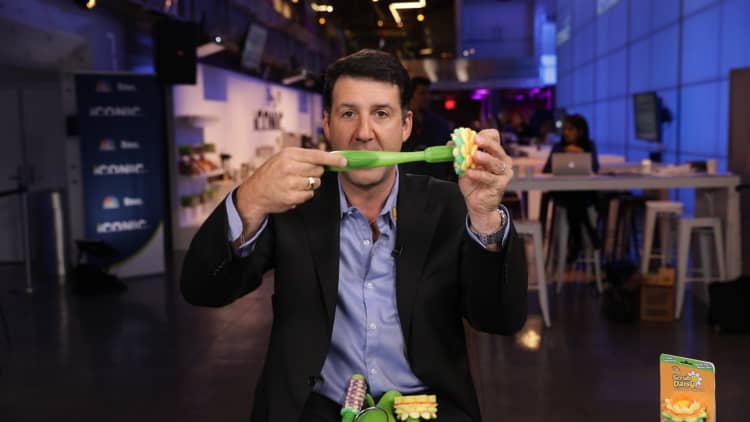
Rocketbook
Rocketbook's "Shark Tank" pitch was nothing if not wild. Company founders Jake Epstein and Joe LeMay brought a smartphone-compatible notebook to the table, which offered instant cloud-sharing features and could have its pages wiped clean for reuse by placing it in the microwave.
The idea might've been too out there for Mark, Lori and Kevin, but consumers seem to like it just fine. The first Rocketbook — the Wave — went on to become an Amazon best-seller after $1.2 million worth of Indiegogo funding. Crowdfunded to the tune of $4 million more, the Rocketbook Everlast catapulted the startup to over 100,000 sales and $10 million in revenue.
MealEnders
In 2017, Mark Bernstein asked the sharks for $300,000 in exchange for 8 percent of his company, MealEnders, proprietors of a lozenge that claims to curb the appetite and ward off desert cravings naturally.
Though Bernstein had already sold $1.4 million worth of product on his own Amazon store in just 18 months, "Shark Tank" investors weren't into the taste and proved predictably wary of anything that might be dubbed a "diet product." It's too early to tell if MealEnders will blow up entirely, but the prospect of future success looks promising: Following the airing of Bernstein's episode, 15,000 new orders generated over $400,000 in sales over three days alone.
Over the Moo
On season three of "Shark Tank," the sharks didn't go in for the cows. Maybe it's because the cow's ice cream, pitched by Alex Houseman on the Australian version of the show, was totally dairy-free.
Although the tank's Aussie investors wished Houseman "luck and chutzpah," he might not need it after all. By 2017, Over the Moo had locked down a 500-store distribution deal with Woolworths, grew 344-percent to exceed revenues of $1 million — about $768,000 USD — and had sold more than 350,000 tubs of dairy-free ice cream in a single financial year.
Like this story? Like CNBC Make It on Facebook.
Don't miss: 'Shark Tank' star Kevin O'Leary has an unusual splurge: $120 luxury underwear
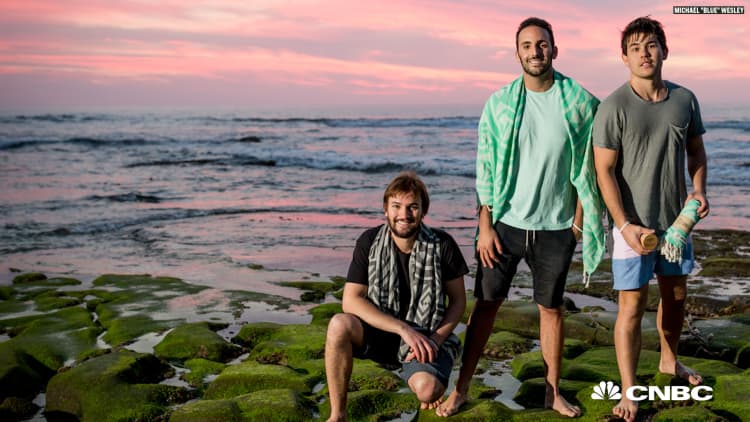
Disclosure: CNBC owns the exclusive off-network cable rights to "Shark Tank."

